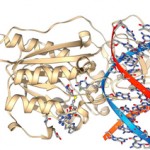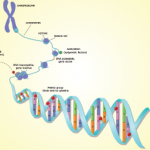Taken together, the results suggest that the resolution of inflammation requires a repression in inflammatory gene transcription, which, in turn, requires epigenetic modifier-mediated active chromatin regulation. When this approach fails, the organism experiences an exacerbation of the inflammatory response as demonstrated by endotoxic shock and colitis. This more detailed understanding of the molecular regulation of the cessation of cytokine production may ultimately suggest new therapeutic strategies for the resolution of inflammatory processes.
Lara C. Pullen, PhD, is a medical writer based in the Chicago area.
ad goes here:advert-1
ADVERTISEMENT
SCROLL TO CONTINUE
Reference
- Zhang Q, Zhao K, Shen Q, et al. Tet2 is required to resolve inflammation by recruiting Hdac2 to specifically repress IL-6. Nature. 2015 Sep 17;525(7569):389–393. doi: 10.1038/nature15252


